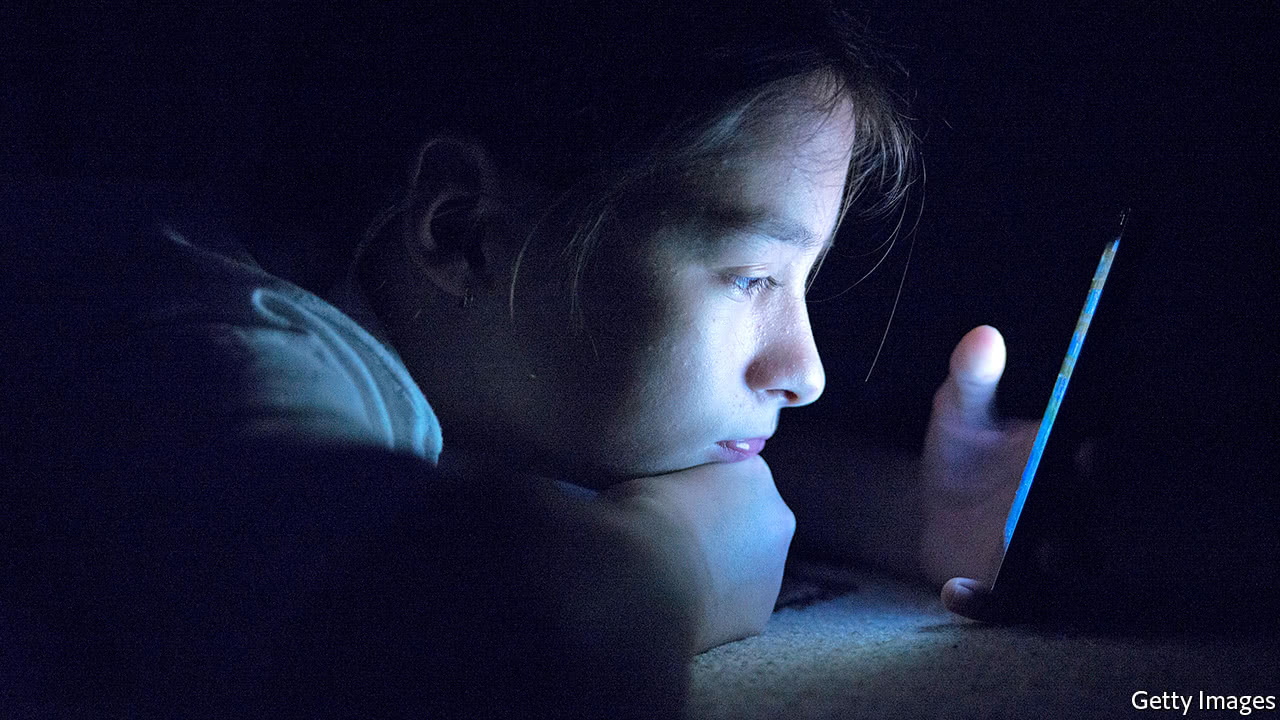
THE final bell rings at a high school in downtown Los Angeles, and nearly every pupil spilling onto the pavement either clutches a smartphone or studies a screen, head bowed. A group of boys strolls down the street laughing at a YouTube video, while a girl waiting for her lift home catches up with the Kardashian sisters on Instagram. Since 2007, when Apple released the first iPhone, such scenes have become the norm in America. The Pew Research Centre found that three-quarters of teens have access to a smartphone. According to one Facebook executive, millennials look at their phones on average more than 150 times a day.
The many hours young people spend staring at their phone screens might be having serious effects, especially on young girls, according to Jean Twenge, a psychology professor at San Diego State University and author of “iGen: Why Today’s Super-Connected Kids Are Growing Up Less Rebellious, More Tolerant, Less Happy”.
By scrutinising national surveys, with data collected from over 500,000 American teenagers, Ms Twenge found that adolescents who spent more time on new media—using Snapchat, Facebook, or Instagram on a smartphone, for instance—were more likely to agree with remarks such as: “The future often seems hopeless,” or “I feel that I can’t do anything right.” Those who used screens less, spending time playing sport, doing homework, or socialising with friends in person, were less likely to report mental troubles.
As Ms Twenge herself concedes, the study does not prove causality. It is possible that another force is behind the increased diagnosis of depression among adolescents, and that sad teenagers are more likely than their happy peers to seek refuge in their phones. But a growing body of scientific evidence supports the idea that social media can inspire malaise. One study published in 2016 asked a randomly selected group of adults to quit Facebook for a week; a control group continued browsing the site as usual. Those who gave up Facebook reported feeling less depressed at the end of the week than those who continued using it. Another experiment published in 2013 found that the more participants used Facebook, the gloomier they felt about their lives. Additionally, it showed that feeling blue did not lead people to increase their Facebook use.
Not all studies are so damning. Past research suggests that social-networking sites can promote happiness if used to engage directly with other users, rather than just to covet glossy photos of someone else’s exotic holiday or lavish wedding. This distinction is a reminder that social media is what users bring to it—their attitudes shape their experiences, both on and offline. “It’s pretty easy to romanticise someone’s life based on their Snapchat or Instagram,” reflects Sarah, a junior at high school in Los Angeles. “I try to remind myself that it’s filtered. People only post what they want you to see, so it can seem like their life is better than yours.” Nicole, another junior, agrees. But when asked if she has ever considered deleting her social-media accounts, she looks perplexed. “No. I would feel lost.”
From The Economist
